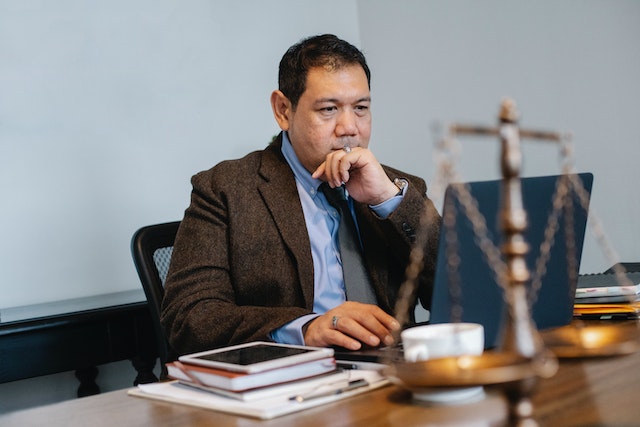When you are hit in the head, it can be a traumatic experience with lasting effects that can range from mild to serious. Whether you suffered a minor concussion or traumatic brain injury (TBI), there are steps you can take to help protect your health and ensure optimal recovery.

In this guide, we will discuss how to deal with and live after getting hit in the head, so keep on reading.
1. Calling a traumatic brain injury lawyer
If you have suffered a serious head injury, one of the first things you should do is call a traumatic brain injury lawyer. Even if you don’t think you need legal representation, talking to an experienced attorney can help to ensure that your rights are protected and that you receive the compensation you deserve. An experienced TBI lawyer will be able to advise on what steps to take when it comes to filing a claim and dealing with insurance companies. For example, if you live in Georgia, you can find a traumatic brain injury lawyer in Douglasville and get the help you need. It’s important to act quickly after a head injury, as accident claims can be time-sensitive.
2. Seeking medical attention
Seeking medical attention quickly after getting hit in the head is important for both short-term and long-term recovery. It’s important to seek prompt medical care because even mild concussions can cause severe complications if left untreated. Additionally, some symptoms may not appear until days or weeks after the incident. Your doctor can perform a physical exam, order tests such as MRI or CT scans, and provide treatment to minimize both the short-term and long-term effects of the injury. The treatment you receive will depend on the severity of your injury, so it’s important to consult with your doctor and follow their advice.
3. Resting
Head trauma can cause fatigue and other symptoms that require rest to recover from. Therefore, it’s important to rest for at least 24 hours following an injury, even if you don’t feel particularly tired yet. During this time, your body needs to heal itself so you should avoid activities such as exercising or yard work. You may need more than one day of rest depending on how severe your head injury is; always follow your doctor’s advice regarding activity levels during recovery.
4. Watching for symptoms
It’s important to watch for signs of a more serious head injury even after you’ve been seen by a doctor. These can include sleep disturbances, confusion, changes in mood or personality, and difficulty concentrating. If you experience any of these symptoms following a head injury, contact your doctor right away. There are a variety of treatments that can help to reduce the severity of these symptoms and improve recovery.
5. Taking medication
Depending on the severity of your injury, your doctor may prescribe medication to help with pain and other symptoms associated with head trauma. For example, ibuprofen or acetaminophen can be taken to reduce inflammation and headaches while anti-depressants can be used to combat depression or anxiety. It is important to take any medications as directed and follow up with your doctor regularly; certain medications can have side effects, so always make sure to ask your doctor about any potential risks.
6. Getting the right support
It’s important to get the emotional and psychological support you need after a head injury. Many people find it helpful to connect with other individuals who have gone through similar experiences. Support groups are often available online or in person and can provide an invaluable network of assistance throughout the recovery process. It’s also important to take time for yourself, whether that be going for a walk or spending time with friends and family.
Why is it important to take these steps after getting hit in the head?
It is important to take these steps after getting hit in the head because they can help to ensure that your short-term and long-term recovery are successful. Seeking medical attention quickly can minimize complications, while resting allows your body time to heal. Watching for symptoms can catch any potential problems early on while taking medication can reduce pain and other symptoms associated with head trauma. Finally, getting the right support system is essential for emotional and psychological recovery. Taking these steps will make it easier to live a full life despite suffering from a head injury.
As we saw, head trauma can have serious consequences, so it’s important to take the necessary steps for recovery. This includes seeking medical attention, resting, watching for symptoms, taking medication, and getting the right support. By following these steps you can ensure that your short-term and long-term recovery are successful. However, it is important to note that everyone’s experience is different; what works for one person may not work for another. Good luck!
Related Posts:
- Car Accident Negligence: Who Is at Fault, and How Can You Prove It?
- The Negligence Claim in a Personal Injury Case: What You Need to Know
- Guidelines for Pursuing Compensation for Personal Injury to Your Child
- Common Mistakes To Avoid After Suffering a Work-Related Injury
- Coping With a Personal Injury While Attending School